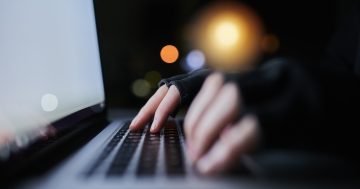 The eSafety Commission has highlighted the need for more rigorous, consistent and transparent verification of online social media accounts in its latest position paper on anonymity and identity shielding online.
The eSafety Commission has highlighted the need for more rigorous, consistent and transparent verification of online social media accounts in its latest position paper on anonymity and identity shielding online.
In her position paper, Anonymity and identity shielding, eSafety Commissioner Julie Inman Grant said anonymity and identity shielding allowed a user to hide or disguise their identifying information online.
“It’s one of the most vexed issues of the digital age,” Ms Inman Grant said.
“But when it comes to anonymity, the right to privacy and free speech must be balanced against the right to live free from online harassment and abuse,” she said.
“While anonymity can be a powerful form of protection for victims of domestic violence, whistle blowers and those living under authoritarian regimes, it can also provide safe harbour for those wishing to propagate online misinformation and hate, abuse children, or target others online.”
Ms Inman Grant said anonymity was important but it shouldn’t be prioritised at all costs.
“Because while it can indeed be a powerful protector of free speech, it can also be misused to abuse and harass with impunity and this can actually result in the silencing of victims,” she said.
“As with most things there needs to be a balance, and there are simple ways we can still preserve anonymity while also providing a means to identify those who hide behind it to abuse, harass and threaten others,” she said.
Ms Inman Grant also called on tech companies to take greater steps to suspend or remove anonymous accounts that were created to harass users or that violated a platform’s terms of service, particularly the use of fake and impersonator accounts.
“We have seen the use of anonymous and imposter accounts used to devastating affect with volumetric trolling where victims are inundated with coordinated, multi-platform abuse with the ultimate goal of silencing them,” she said.
The Commissioner said concepts such as ‘digital licence plates’, blockchain-based identity management systems and digital signatures were also being explored as potential solutions to authenticate people online.
The eSafety Commission’s Anonymity and identity shielding position paper can be accessed at this PS News link.









